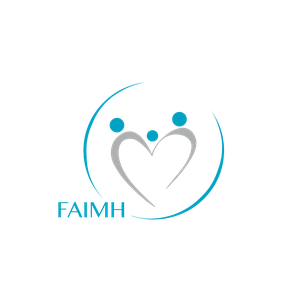We have an opportunity to elevate the visibility of IECMH policy needs in Congress! As you may know, there's lots of exciting action on mental health in the Senate right now.
Why is FAIMH sending you a Policy Alert? One set of IMH competencies that we aim for all IMH professionals to meet is Law, Regulation and Agency Policy. Additionally, there is an Endorsement category specifically for those who work in policy and advocacy--the Infant Mental Health Mentor-Policy (IMHM-P). Florida and FAIMH are fortunate to have two Policy Mentors, Dr. Christine Hughes and Dr. Allison Parish, to help keep us informed on important policies in need of advocacy and action.
The turnaround time for this request is tight (Monday Nov. 1), but these issues are critical to IMH professionals in the US, and many are directly aligned with the work each of you is doing, promoting, and advocating for in Florida.
Senate Finance Committee Chairman Ron Wyden (D-Oregon) and Finance Committee Ranking Member Mike Crapo (R-Idaho) have launched an effort to develop bipartisan legislation to address barriers to mental health care, and they've issued a request for input from the field. Their letter requests evidence-based solutions and ideas to enhance behavioral health care in the following areas (sections a-e below). That's where you come in!
Please email your recommendations. We’ve added some notes about infant/early childhood mental health (IECMH) issues that come to mind for us in these categories to get your ideas flowing, but we encourage you to draw from your experience--this is an opportunity to give real-world context to promising innovations and solutions.
In their letter, Sens. Wyden and Crapo ask about...
a. Strengthening the workforce – The Senators need to understand that the IECMH workforce is a specialized and necessary one. The Alliance, Zero to Three, and Associations for Infant Mental Health around the nation are encouraging the Senate to invest in the IECMH workforce and establish the IECMH clinical workforce development program introduced in the RISE from Trauma Act. This must include supporting high-quality, competency-based training and professional development, as well as support for professionals earning the Florida Endorsement for Culturally Relevant, Relationship-Focused Practice Promoting Infant and Early Childhood Mental Heath®.
b. Increasing integration, coordination and access to care – This is a great place to highlight the value of mental health consultation across settings including child care, home visiting, early intervention, primary care, and child welfare, as well as integrated behavioral health in pediatrics, obstetrics, and family health settings. This is another place to promote the importance of Florida's Endorsement for Culturally Relevant, Relationship-Focused Practice Promoting Infant and Early Childhood Mental Heath®. Earning IMH Endorsement should be expected of everyone serving infants, young children and/or their families--not only mental health clinicians. There are several categories in which a professional can earn Florida's IMH Endorsement, and therefore, professionals across disciplines should be supported in earning it if they are serving children under 5 years and their families.
c. Ensuring parity between behavioral and physical health care – Examples from Florida's professionals about the lack and importance of parity are valuable in painting a picture. We know, based on our current understanding of brain and developmental science, that no matter what you call it--mental health, emotional health, relational health--it matters and it matters MOST in the early years. The ACEs research shows us that the way that we develop mentally, emotionally and relationally is critical to our growth and health lifelong. Our healthcare and health insurance systems must change to ensure that preventative mental and emotional health is just as important as preventative physical health, and intervention and treatment of mental and emotional health concerns is just as important as the treatment of physical health concerns.
d. Furthering the use of telehealth – So many states have great learnings from the past year and a half about how telehealth can work for young kids, and what limitations Congress should be mindful of for IECMH services. Psychological services access programs, consultation, and other innovations in telehealth for IECMH are valuable to promote and grow. You might describe, based on your experience, how telehealth could be best used with families with young children, perhaps highlighting more access to populations who otherwise would or could not access traditional in-person care, or ways that we could expand telehealth to other populations that would keep them connected to care during transitions (e.g. the transition home from the hospital after a birth).
e. Improving access to behavioral health care for children and young people – We need to make sure the Senate understands that infants, toddlers, and young children are part of the population that needs to be served, and that they have a right to developmentally appropriate services that meet their unique needs! They also need to hear that caregiver mental health, including perinatal mental health, is essential. This is a great opportunity to show them innovative ideas for providing services to young children and whole families. This is a chance to highlight that the needs of professionals must be addressed and supported, too. The direct service that IECMH professionals does is hard and can be traumatizing; professionals deserve support to ensure they are providing the best services they can to our youngest residents and their families.
Please set aside time before Monday Nov. 1st to send your input. The more people the Senate hears from, the most seriously they will take these requests to consider infant and early childhood mental healthcare a critical part of this overall initiative. You can read the letter for more detail in their request, and more about this initiative here. You must submit your response to mentalhealthcare@finance.senate.gov by Monday November 1st.
Thank you for taking this time to be an advocate for Florida's future!



 Today, FAIMH celebrates YOU!
Today, FAIMH celebrates YOU!




